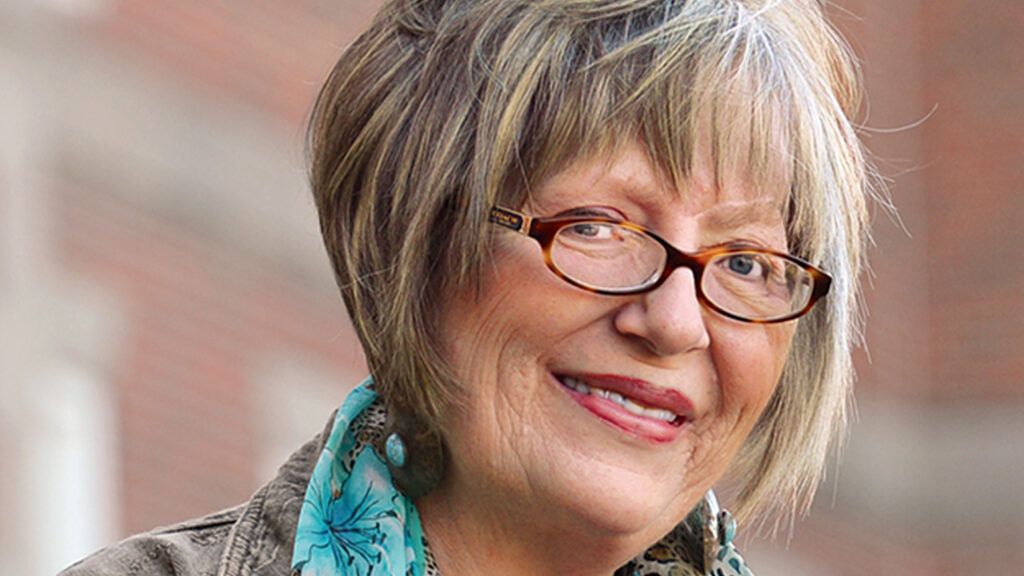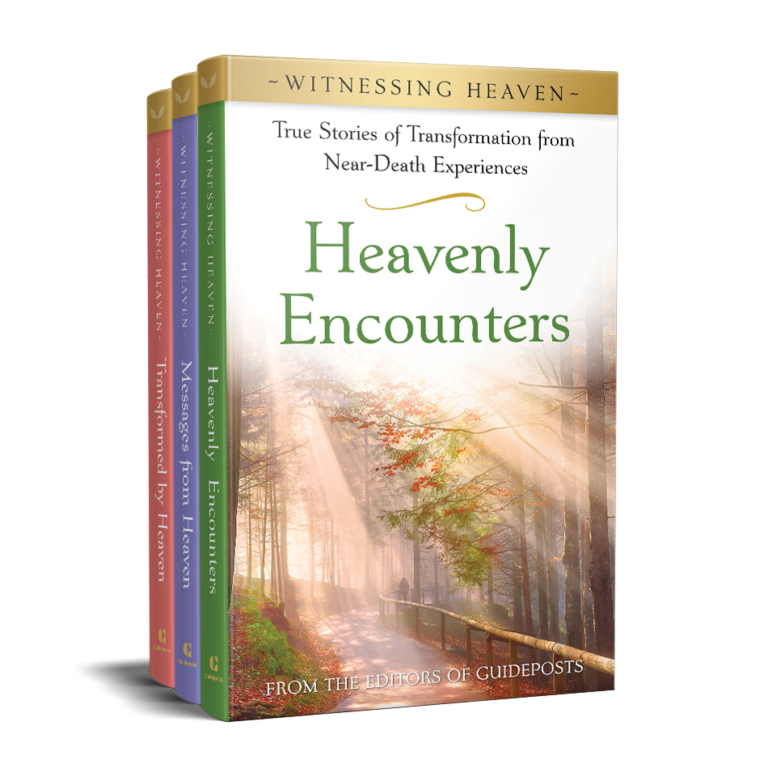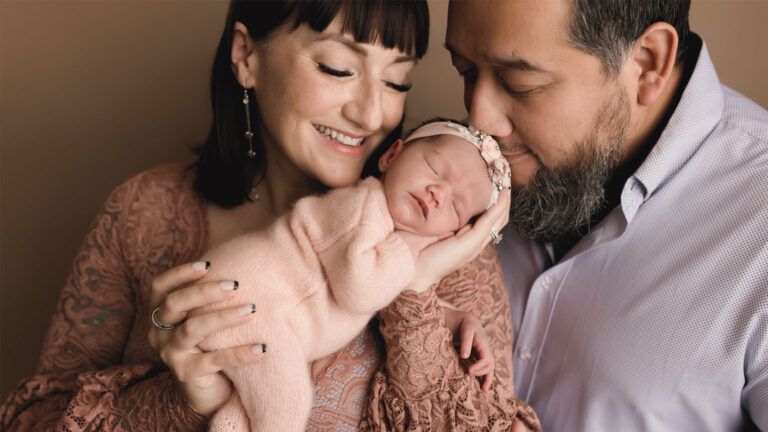I was 19 years old, studying for my associate’s degree in nursing. It was the winter of my last semester, and I was headed for the library. “Come eat lunch with us and study for the psych quiz tomorrow,” one of my classmates said. “The neurology exam isn’t until next week. We can cram for it later.” I shook my head. I couldn’t explain it. But I just couldn’t shake the feeling that I had to study my neurology materials for class right now.
I found a secluded spot in the library, peeled off my heavy wool coat and opened my textbook to a section the teacher hadn’t yet covered—the signs and symptoms of head injuries. I found myself absorbed in the material. Like nothing else in the world mattered. When I glanced at my watch, three hours had passed. I hurried home to my mother’s…and found Mom lying on the porch steps. She’d slipped on a patch of ice.
I helped her to the sofa. One moment she was alert, the next she was groggy. A list of symptoms popped up in my mind. Things I’d just read about. I rushed Mom to the hospital, where she underwent surgery to remove a blood clot in her brain. “Had she gone to bed tonight,” the neurosurgeon told me later, “she probably would’ve died in her sleep.”
That was my first experience with nurse’s intuition. But not the last. I’ve been a nurse for more than 40 years. I’ve worked in every field the profession has, from critical care to gerontology. I’ve authored more than 100 articles in medical journals, I’ve written four award-winning nursing textbooks and I have a Ph.D. in health and human services. My expertise has served me well.
It’s my intuition, though, that’s been my greatest guide. It has told me things about my patients that no chart, journal or textbook ever could. Though some scientists may scoff at the phenomenon, for which there is little beyond anecdotal evidence, there’s no denying its existence. Whether you call it a hunch, a sixth sense, a nudge or a special inner knowing, nurses have been relying on their instincts to treat the patients in their care since before the days of Florence Nightingale.
Some, it seems, use it more than others. Nursing is both art and science, and not every nurse is intuitive. It’s a skill that must be honored and honed. In fact, according to the University of Minnesota, it’s more experienced nurses who are more likely to use intuition. Research also indicates that those who are intuitive share certain traits. They’re introspective, highly observant. And they listen, really listen, to people.
READ MORE: CHECK OUT THESE REMARKABLE NURSING TALES!
Take nurse practitioner and instructor Sylvia Gardner, a former colleague. She recalls a patient, an alcoholic, who walked into her clinic in West Virginia one day, limping and staggering. He claimed he hadn’t had a drink in days. No one believed him. “Everyone assumed he was fine,” Sylvia says. “They said he just ‘needed to go home and sleep it off.’”
But Sylvia had a different reaction. Warning bells went off in her head, unlike anything she’d ever experienced. She listened to her inner voice and examined the patient more closely. In fact, he had a fracture in his leg. Had Sylvia succumbed to stereotypes, the patient would’ve been discharged and forgotten. “I learned very early on,” Sylvia says, “that you simply cannot shortcut listening.”
Listening to oneself is important, even if doing so seems unorthodox. That’s what happened to post-anesthesia care nurse Kimberly Fuller, who relied on her instincts to treat a diabetic patient in his thirties three days after he underwent a cardiac catheterization and stent placement. The doctor had already written the patient’s discharge orders. But Kimberly had a funny feeling about the “funny feeling” the patient casually mentioned in his right arm. She recognized the patient was in trouble, even though heart attack victims typically feel discomfort in their left arm, not their right.
“I know your wife’s on her way to pick you up,” Kimberly told the patient, “but let’s get a quick EKG. If everything’s okay, we’ll send you home.” The patient was annoyed by Kimberly’s interference. Until the test proved Kimberly’s own funny feeling and the patient was rushed back into the cath lab for another stent placement.
There’s no doubt that intuitive abilities like Kimberly’s stem, to a good degree, from experience. But part of a nurse’s intuition remains a mystery. From my numerous interviews with fellow nurses, it’s clear that many see their instincts as closely intertwined with spirituality. Could it be that God equips nurses with an intuitive gift, one that helps them see what others miss?
Gwen Skidmore, a longtime ER nurse, certainly thinks so. She told me her intuition is a “spiritual thing” that makes her hyperaware when something isn’t right. She prays for God’s guidance before each and every shift. After praying, she’ll often get a hunch that urges her to “do something more” for a particular patient. She describes it as an uneasy feeling that propels her to get help before a crisis occurs. “I just know,” she says. “It’s not anything you can learn. There’s often just something about a patient that you can’t put your finger on.”
Gwen’s interventions have helped alter the course of many lives. So much so that patients seek her out to thank her. Doctors too. “I always tell new nurses to ‘go with your gut,’” she says. “It will never fail you.”
That’s a lesson I learned the night my instincts saved my mother’s life. And again, seven years later, on the last day of my Bachelor of Science nursing program. My professor ended class with words that would define the rest of my career: “Whenever you have a hunch about one of your patients, pay special attention. It will lead you in a direction that no theory ever can.”
The next day, I headed for the hospital, where I worked as a gastroenterology nurse clinician. It was a Friday, and the support staff had gone home for the day. So it was up to me to wheel my patient, Roger, to his car. He’d just received a clean bill of health after an outpatient procedure on his esophagus. On the elevator down to the lobby, though, a hunch like my teacher described completely overcame me.
When Roger and I exited the elevator, I ducked into the ladies’ room and grabbed a paper towel. I jotted my home number on it, something I never did, and gave it to Roger’s wife. Just in case, I told her. Early the next day, the phone rang. It was Roger’s wife. She said Roger’s skin was clammy and he was vomiting blood. I hung up and immediately called for an ambulance. I met Roger and his wife at the ER. If he hadn’t gotten there just when he did, he would’ve bled to death.
Somehow my intuition got me to do something I’d never done before. Just the right thing.






